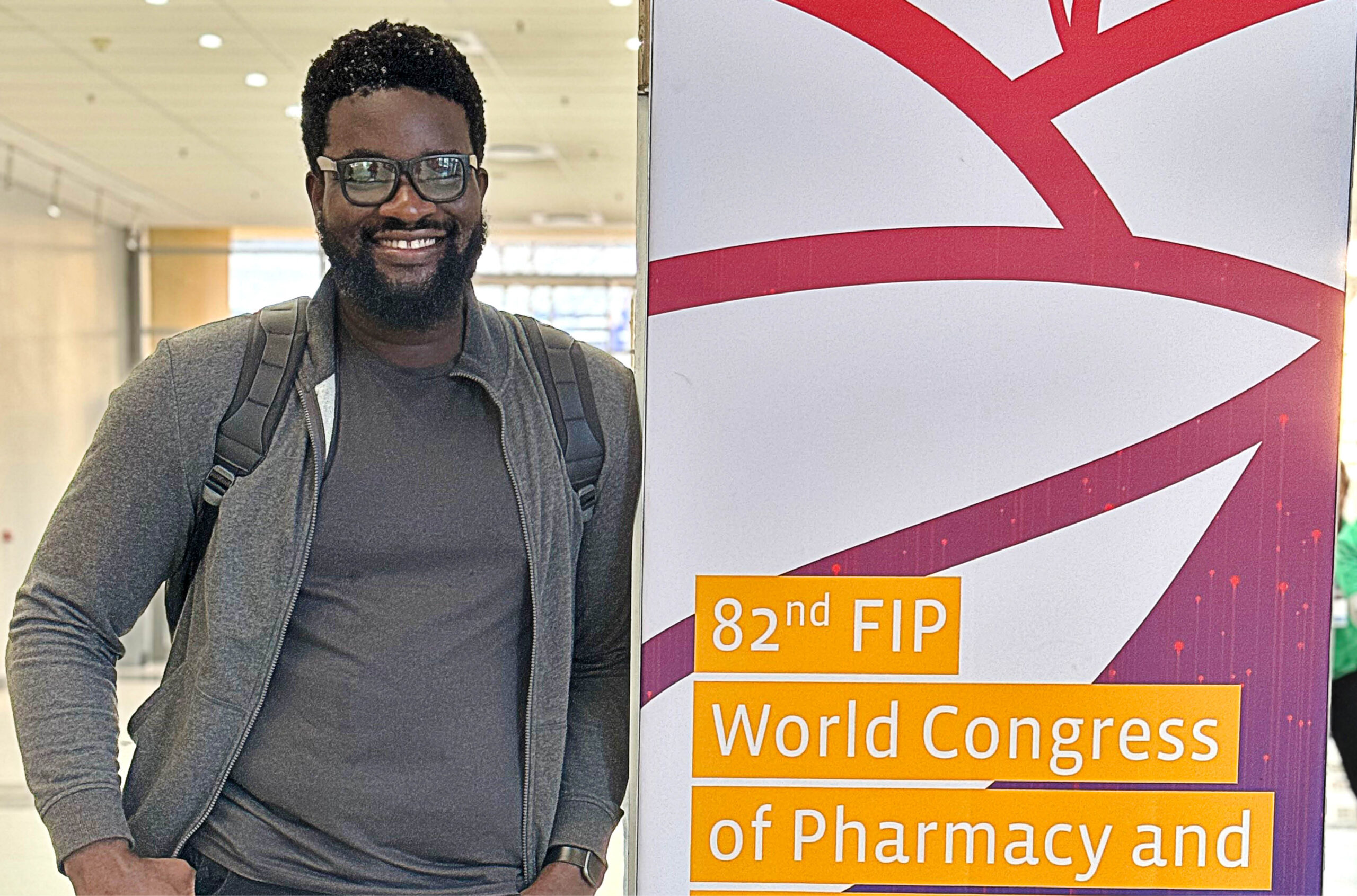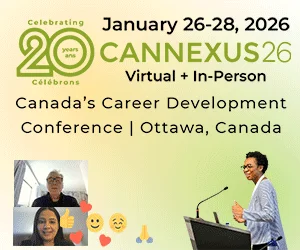Scholarship winner studies cancer care in Nigeria
International PhD student Otuto Amarauche Chukwu goes on the ground to interview patients and caregivers.

The winner of a 2023 International Development Research Award, Otuto Amarauche Chukwu returned to his native Nigeria to study the challenges that patients face in accessing cancer care as part of his PhD in health policy at the University of Toronto. We spoke to him about his research.
Q: Since starting your fieldwork in June last year, what are the main objectives of your research, and what kind of information are you aiming to collect?
A: My research explores how cancer patients in Nigeria navigate the health-care system and aims to identify barriers to timely and effective care. I hope to compile the opinions of cancer doctors, pharmacists and policymakers on how we can bring certain aspects of cancer care closer to the community through pharmacists. This might help in reducing the rising burden of cancer in Nigeria.
I am collecting qualitative data through interviews with patients, caregivers and health-care providers. The goal is to document real-life experiences, including the burden of cancer treatment and the accessibility of care. Additionally, I am analyzing how pharmacists working in the community could help in addressing these issues and other inefficiencies in accessing cancer care — such as long wait times and limited oncologist availability.
I hope my research could provide evidence that can inform policy decisions and healthcare interventions. The ultimate objective is to contribute to a patient-centered approach to cancer management in Nigeria, ensuring that structural barriers are addressed and that patients receive timely, affordable, and high-quality care.
Q: Can you describe what a typical day in the field looks like for you?
A: A typical fieldwork day begins early with a review of scheduled interviews and logistics. I coordinate with research assistants, hospital staff, patients and their caregivers to ensure that participants are available and comfortable. I usually conduct interviews in hospital oncology wards or in secluded areas of the hospital, depending on participant preferences.
Each interview requires careful preparation, as discussing cancer care can be deeply personal and emotional for participants. I approach every session with empathy, ensuring a safe space for patients and caregivers to share their experiences. During the interviews, I take detailed notes and record key insights, while also observing the healthcare environment and interactions between patients and providers.
Aside from data collection, my day includes liaising with hospital administrators and ethics boards to navigate research permissions and maintain compliance with ethical guidelines. At the end of the day, I review and organize my notes, transcribe interviews and reflect on emerging patterns.
Q: What aspects of conducting fieldwork do you find most rewarding? Could you share an experience or moment that stood out to you?
One of the most rewarding aspects of fieldwork is the opportunity to hear patients’ stories first-hand. Engaging directly with individuals affected by cancer provides a deeper, more human understanding of the challenges they face. Their resilience and determination to access treatment, despite systemic barriers, inspire me and reinforce the importance of my research.
A particularly memorable experience was meeting a woman who had been diagnosed with breast cancer but struggled to receive timely treatment due to financial constraints. She had to travel long distances to access chemotherapy, and at times she skipped treatment sessions because she could not afford the cost. Despite these challenges, she continually remains hopeful, and I found out she actively seeks information on alternative ways to access care. Her story, just like those of most other people I have interviewed, highlights the gaps in Nigeria’s cancer-care system and reinforces the urgency of addressing financial and logistical barriers to treatment.
Moments like these remind me why research is crucial — not just to document problems but to advocate for solutions. Knowing that my work could contribute to meaningful policy changes and improved health-care access makes every challenge in fieldwork worthwhile.
Q: Have you encountered any challenges during the data collection process? If so, how did you address them?
Yes, fieldwork has presented several challenges, including logistical, ethical and emotional difficulties. One of the primary challenges has been navigating additional layers of ethical approvals at the facility. Usually, obtaining ethics approval from the National Health Research Ethics Committee of Nigeria (which is free) suffices for conducting research in public facilities. However, some facilities still want you to get their own ethics approval, which comes at a cost. So, I have to find ways to liaise with hospital administrators to negotiate this cost, seek waivers, or adjust my research budget in order to cover it.
Also, coordinating interviews is difficult with patients who are often in distress due to their diagnosis and treatment. Many patients have limited availability due to hospital appointments, fatigue or financial constraints that make travel difficult. To address this, I worked closely with my research assistants, nurses in the oncology ward, and caregivers to schedule interviews at times convenient for participants, ensuring minimal disruption to their care.
Additionally, listening to patients share their struggles — particularly those facing financial hardships or limited treatment options — was emotionally taxing. But these issues reinforce the importance my research could have. I have been able to navigate them to collect rich, meaningful data while ensuring that participants felt heard and valued throughout the process.
Q: What drives you to continue pursuing your goals as a researcher?
My passion for research stems from the belief that evidence-based findings can drive meaningful policy change and improve health-care systems. In Nigeria, as in many low- and middle-income countries, access to quality cancer care is often determined by socioeconomic status, geographic location and systemic inefficiencies. I am driven by the need to bridge these gaps and advocate for more equitable health-care solutions.
What keeps me going is the impact that research can have on real lives. Every interview, every data point collected, represents a person’s lived experience — someone struggling to access life-saving treatment or navigating complex and fragmented health-care systems. Knowing that my work can contribute to policies that enhance access to affordable cancer care, improve service delivery and reduce patient suffering is a powerful motivator.
Additionally, research allows me to contribute to a growing body of knowledge that informs global health discussions. By shedding light on local challenges, I hope to inspire solutions that are contextually relevant and sustainable. Ultimately, I am committed to advancing health equity through research, ensuring that no patient is left behind due to systemic barriers.
Featured Jobs
- Psychology - Assistant ProfessorSt. Jerome's University
- Education - Indigenous Lecturer or Assistant Professor, 2-year term (Teacher Education)Western University
- Division Chair/Division Head/Chief and Academic Vascular SurgeonWestern University
- Nursing - Assistant Teaching ProfessorOntario Tech University
- Law - Assistant or Associate Professor (International Economic Law)Queen's University




Post a comment
University Affairs moderates all comments according to the following guidelines. If approved, comments generally appear within one business day. We may republish particularly insightful remarks in our print edition or elsewhere.
2 Comments
You’re not just studying a problem; you’re standing in the gap and building hope through evidence. Keep going, you’re doing an amazing job.
Balancing qualitative insights with quantitative evidence is often the hallmark of high-level academic work, offering both narrative depth and empirical validation. In my own research, having completed two PhDs using mixed methods, I found this approach significantly enhanced the scholarly rigor and overall impact. Wishing you the best of luck with your research journey!